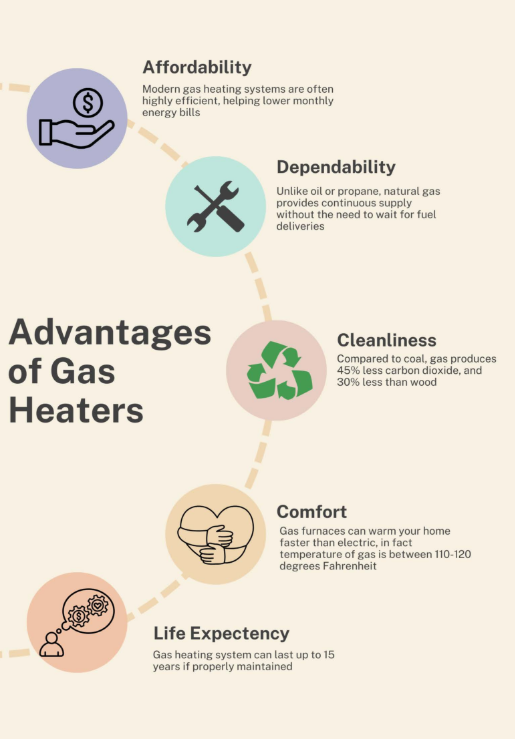What Are the Advantages of Using a Gas Heater Over Other Heating Options?

There are several differences between how gas furnaces and electrical heaters operate. Gas-burning heaters, including gas furnaces, utilize a central system to ignite the fuel (LPG, natural gas, or oil) and generate heat directly. This heat is then distributed through a home via ducts or vents to heat rooms through convection. It is important to remember that these systems are hooked up to a gas line, which provides the fuel that is burned off.
With these differences, there are advantages of using a gas heater versus other heating options:
Affordability:
The affordability of natural gas compared to oil or electricity depends on various factors, including a furnace's efficiency and fuel costs. However, in general, natural gas tends to be more affordable. Modern gas heating systems are often highly efficient, helping lower monthly energy bills.
Cleanliness:
Natural gas stands out as one of the cleanest heating choices. Its emissions primarily comprise water vapor and minimal amounts of carbon dioxide. Compared to coal, gas produces roughly 45% less carbon dioxide, and compared to wood, about 30% less. Opting for natural gas for heating helps maintain a clean home environment and reduces carbon footprint.
Dependability:
When it comes to home heating, reliability is often the most prominent. Natural gas offers peace of mind with its underground gas lines, shielding them from outdoor conditions and ensuring safety during storms. Unlike oil or propane, natural gas provides a continuous supply without the need to wait for fuel deliveries. In addition, gas furnaces can heat your home faster than electric ones. In fact, gas heat typically ranges between 110 and 120 degrees Fahrenheit, ensuring a cozy environment.
When selecting your heat source, there are many things to consider depending on the situation.
